Representatives of the Judiciary, Prosecutor’s Office and Civil Society Discussed the Implementation of a Comprehensive System of Support for War Crimes Victims and Witnesses in Ukraine
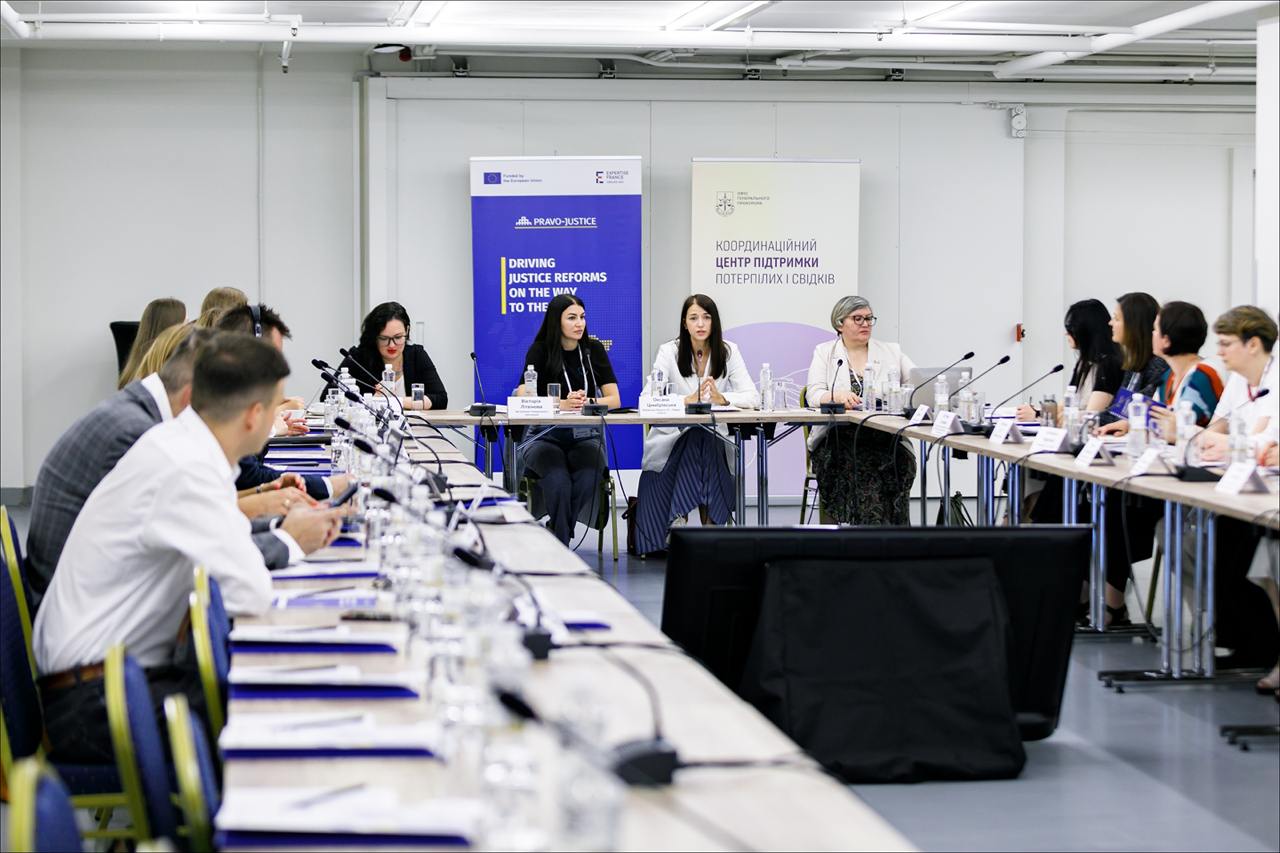
On 9 July, a roundtable discussion “Implementation of a Comprehensive System of Support for War Crimes Victims and Witnesses in Ukraine” organised by EU Project Pravo-Justice in cooperation with the Office of the Prosecutor General and the State Judicial Administration of Ukraine took place. Representatives of public authorities, civil society, the judiciary, and experts of international technical assistance projects participated in the professional discussion to develop concrete steps in this area.
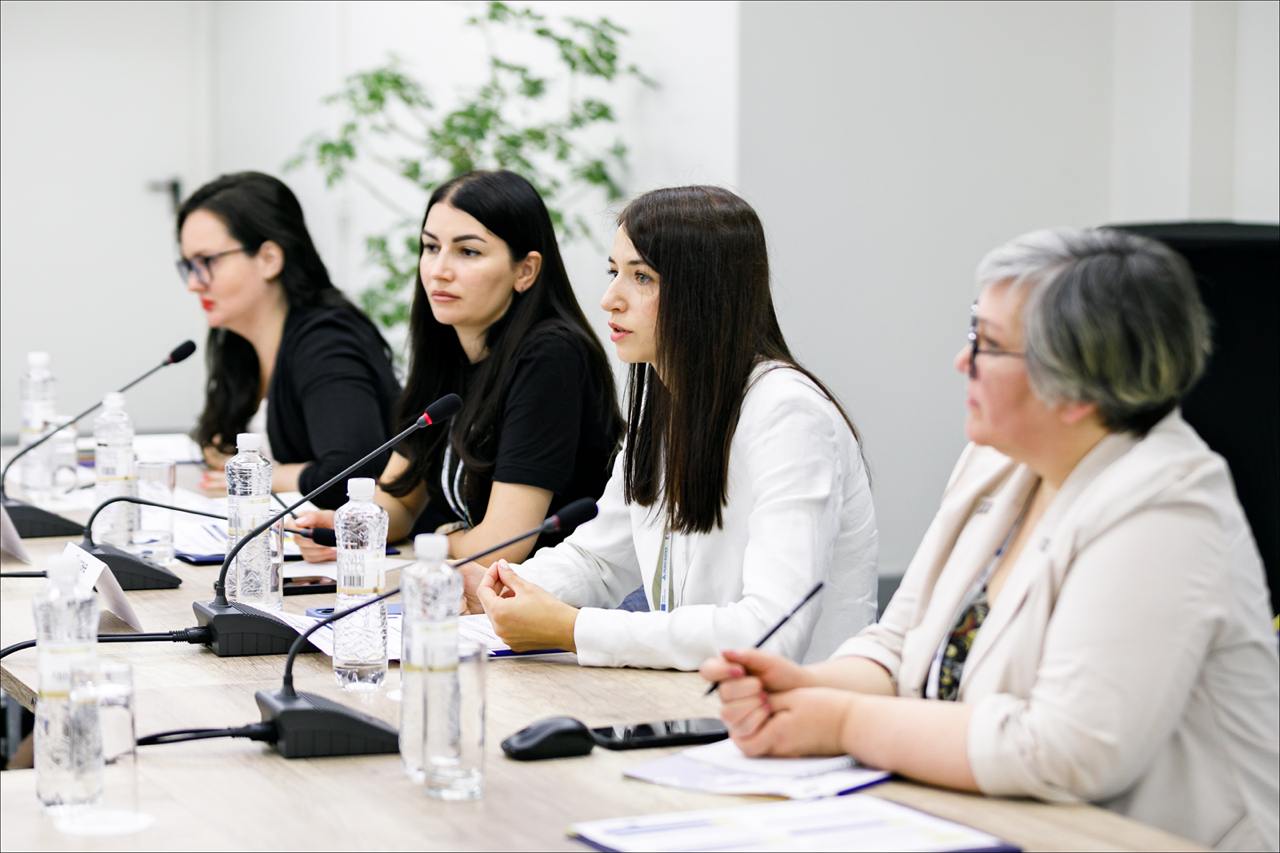
Oksana Tsymbrivska, EU Project Pravo-Justice Team Leader, stressed that implementing a comprehensive system of support for war crimes victims and witnesses is one of the key elements to ensure successful war crimes trials. It involves using due process to properly treat victims and witnesses, coordinated and streamlined cooperation between public authorities, and the capacity of the system to handle the caseload.
EU Project Pravo-Justice has supported the efforts of the Office of the Prosecutor General in this area from the very beginning, in particular during the establishment and launch of the Coordination Centre for Victims and Witnesses.
“This included both expert and technical support during the staff selection and launch of the Centre. Currently, we intend to support the establishment of Centre offices in Eastern Ukraine and to optimise the legislative framework to strengthen the protection of the rights of victims and witnesses,” she said.
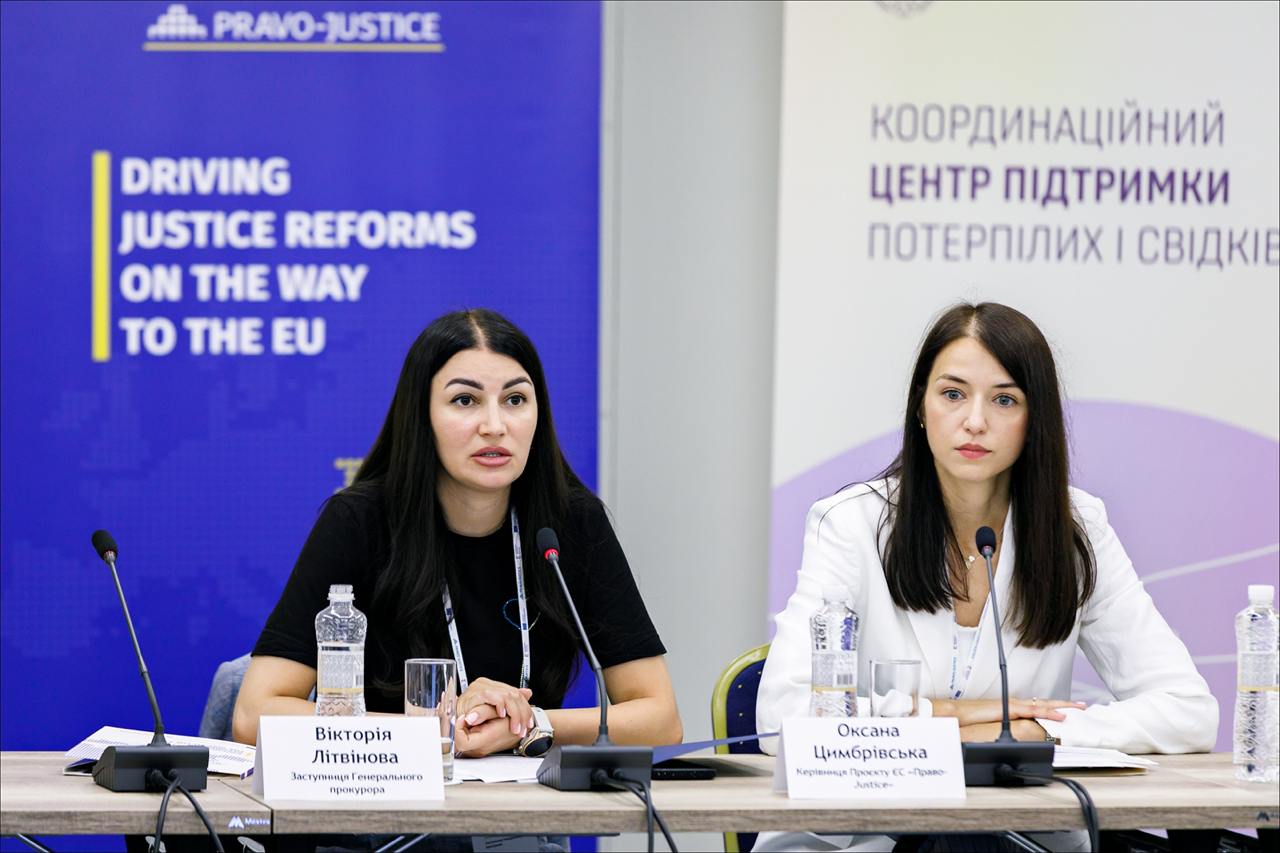
Viktoriia Litvinova, Deputy Prosecutor General, said that working with victims and witnesses requires a comprehensive approach and applying international best practices. According to her, one of the key tasks of the Office of the Prosecutor General is to promote the active involvement of victims and witnesses in pre-trial investigations and trials as they can provide reliable evidence.
“In the future, this will give us the opportunity to restore justice and ensure due court trials,” she emphasised.
Viktoriia Litvinova reminded the participants that last year, the OPG team developed and approved a mechanism to support victims and witnesses of war crimes and other international crimes. To implement this mechanism, the OPG established the Coordination Centre for Victims and Witnesses, which currently works with almost 1000 people.
“Developing comprehensive work with war crimes victims and witnesses will remain a priority in our work and the work of the judiciary. For many years, we will need to exert joint efforts to ensure proper trials in war crimes proceedings and to ensure justice for trial participants,” the Deputy Prosecutor General assured.
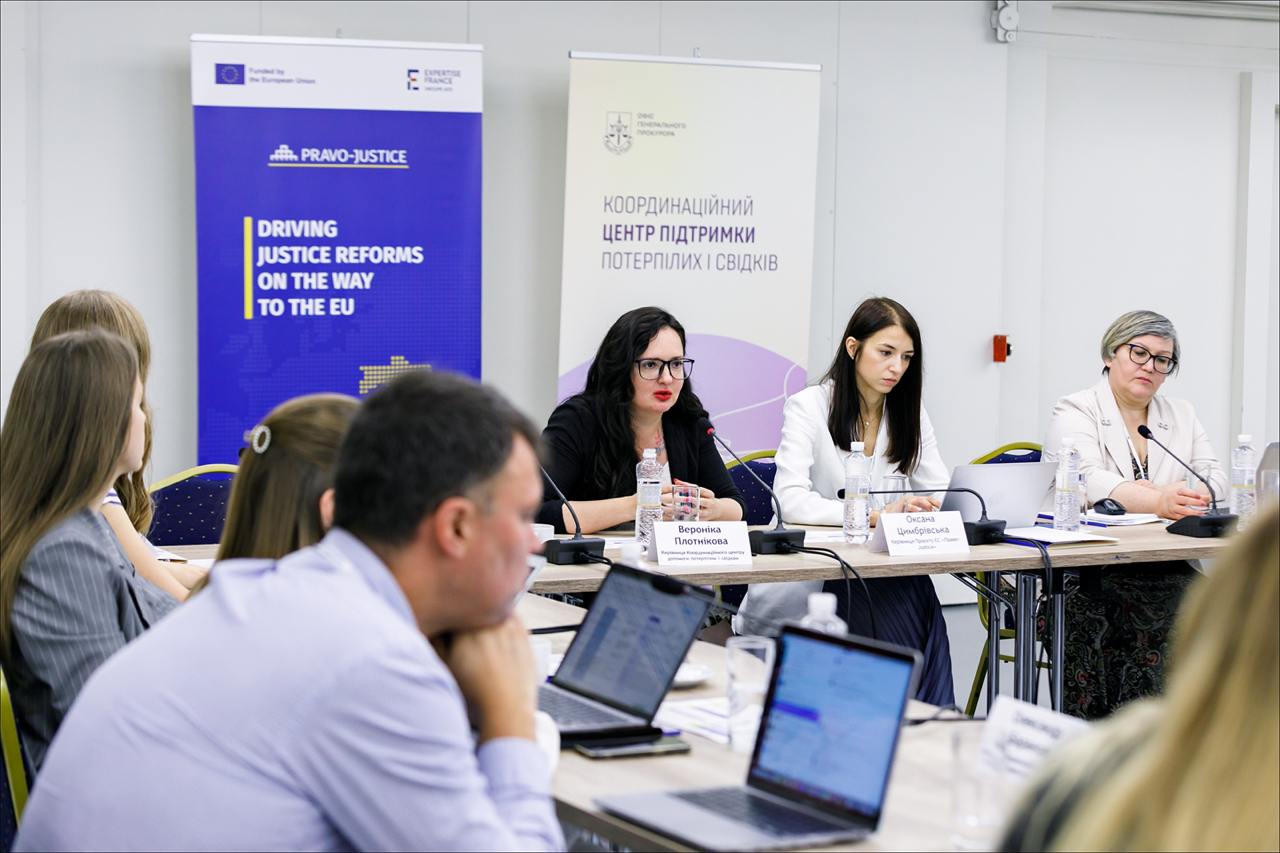
Veronika Plotnikova, Head of the Victims and Witnesses Coordination Centre, spoke about the Centre’s ongoing work and plans for the near future. She also said that the Ukrainian Parliament Commissioner for Human Rights had recently presented the Concept of Support for Victims of Armed Aggression against Ukraine. “The presented contributions will be useful in our further work,” emphasised the Head of the Centre.
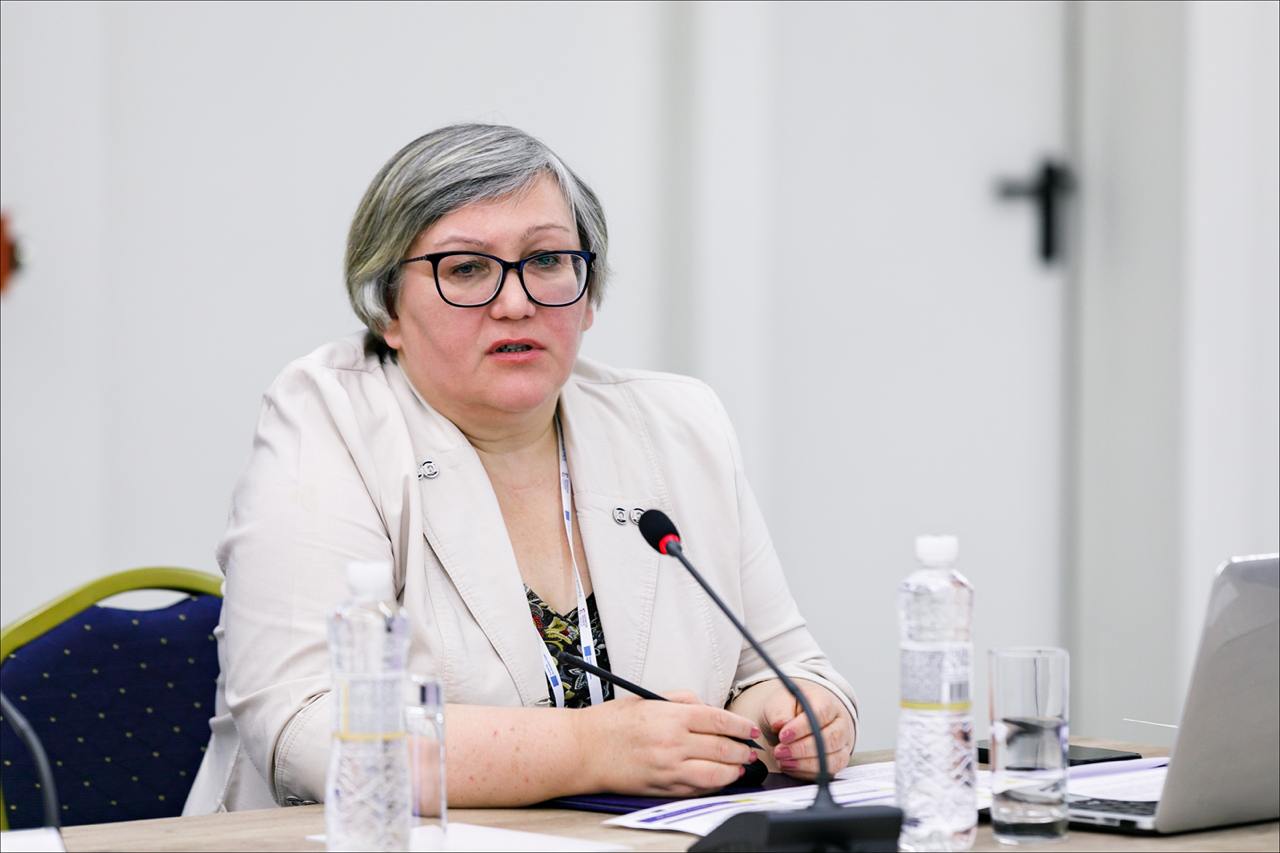
Olha Bulka, Deputy Head of the State Judicial Administration of Ukraine, noted that Russia’s full-scale aggression against Ukraine has also affected access to justice. At the same time, it has also prompted a change in approaches to the functioning of the system. In particular, courts have introduced special services for people who need special attention.
“The number of vulnerable people is growing every day – internally displaced persons, victims and witnesses of war crimes, veterans, military staff and others. All of them need special attention. That is why implementing a comprehensive system of support for war crimes victims and witnesses is extremely important and relevant today,” she emphasised.
Olha Bulka said that support for vulnerable users of court services is already being implemented within the Model Courts Initiative: volunteer services are being set up, court staff are being trained to support war crimes victims and witnesses, and they are sharing their experience with foreign colleagues, etc.
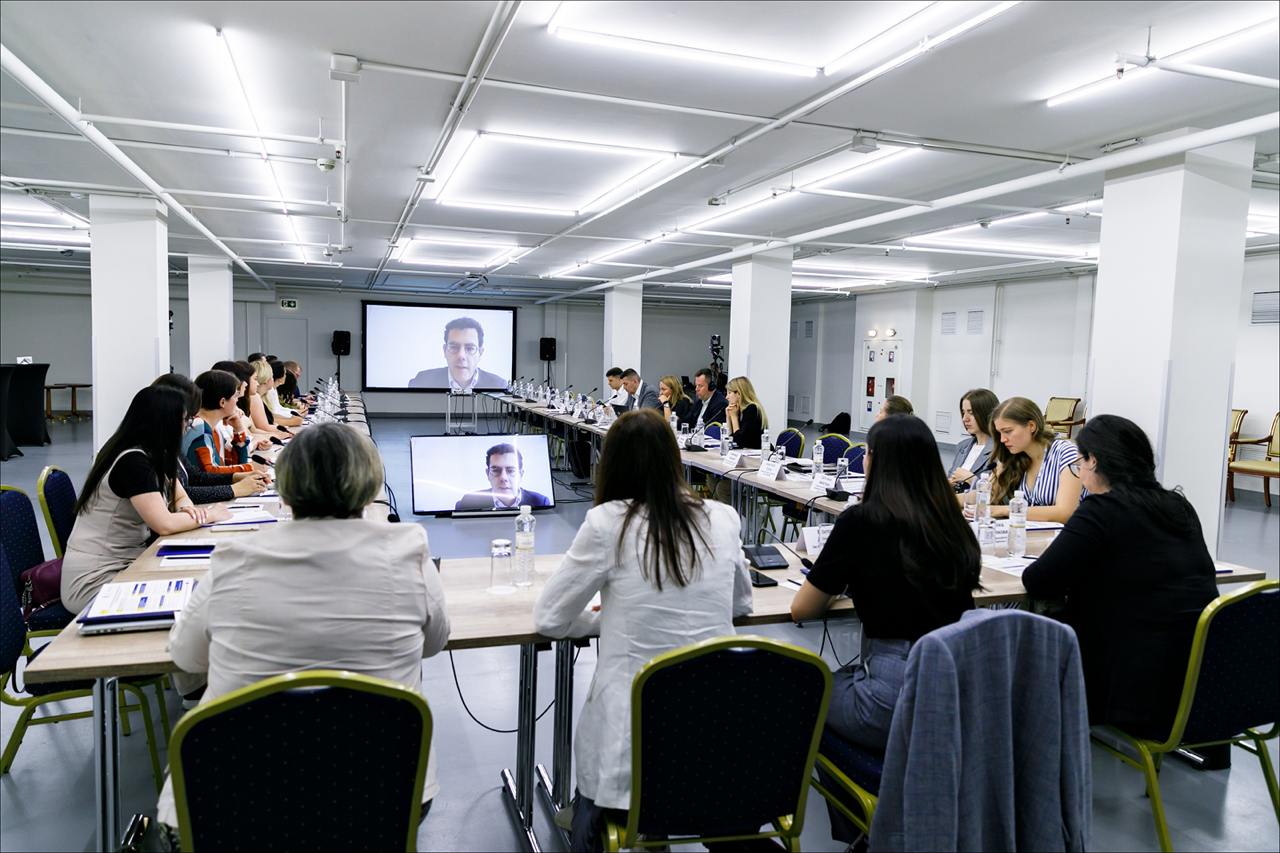
Clemens Mueller, Rule of Law Expert at the EU Delegation to Ukraine, said that the Ukrainian authorities are successfully investigating the first international crimes committed on the territory of Ukraine. Moreover, the Office of the Prosecutor General has declared that a victim-centred approach in criminal proceedings is one of its priorities, which is why Ukraine has already started supporting war crimes victims and witnesses in line with EU standards. At the same time, he said, their implementation requires legislative changes, in particular in the area of compensation for violent crimes and prevention of secondary and repeated victimisation.
“Certainly, the EU, together with Ukraine, will consider this issue during the negotiations on Ukraine’s accession to the EU and the alignment of Ukrainian national legislation with EU acquis,” he emphasised.
Clemens Mueller stressed that assisting victims and witnesses goes beyond legislation and requires everyone’s involvement. That is why Ukraine needs a comprehensive approach to ensure that all victims and witnesses have access to justice, and the EU is ready to support this process as much as possible.
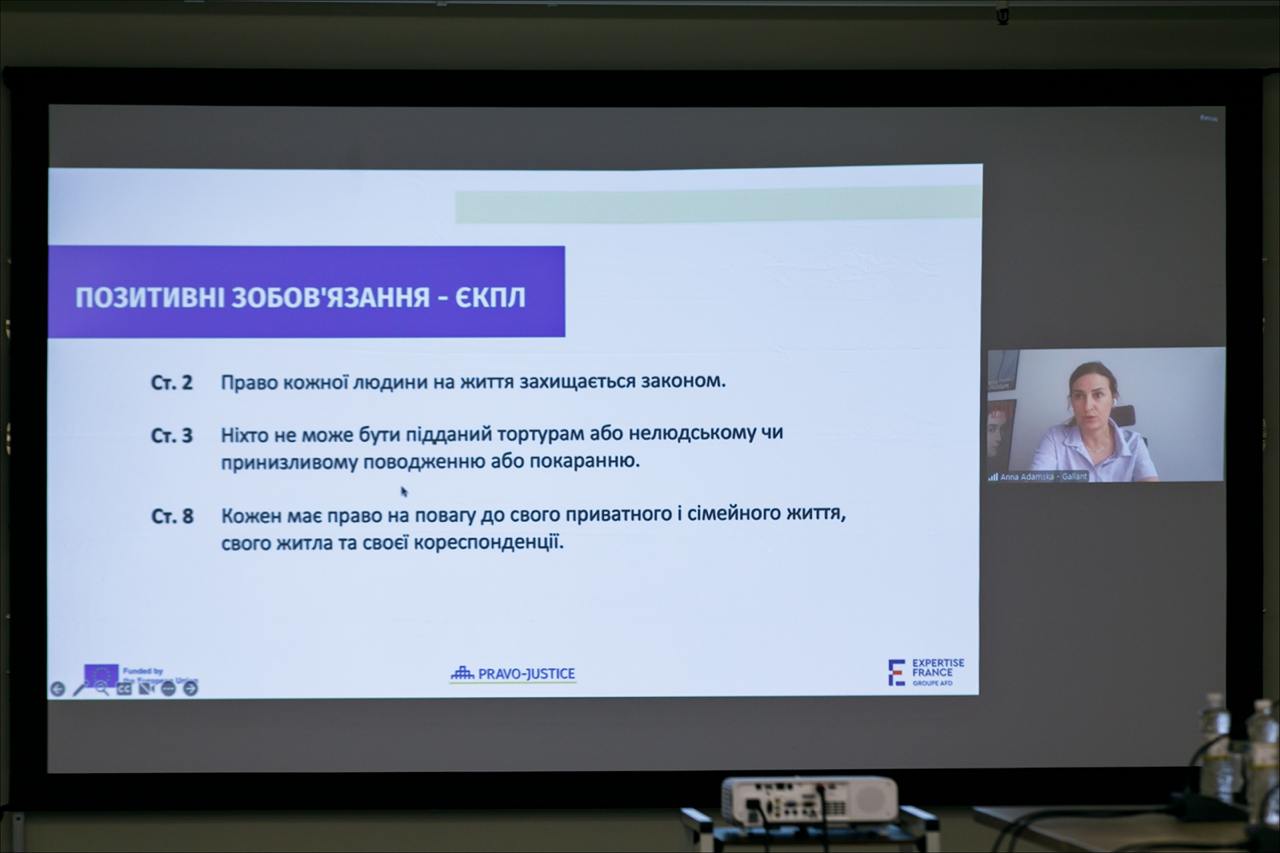
Anna Adamska-Gallant, International Expert on Judicial Reform at EU Project Pravo-Justice, spoke about the best international practices and recommendations for supporting war crimes victims and witnesses. They are based on positive obligations under the European Convention on Human Rights, in particular Articles 2, 3 and 8. They include:
- developing and implementing individualised services based on an assessment of individual needs;
- establishing a system of compensation and reparation for crime victims;
- continuous training for staff as well as other justice professionals working with victims and witnesses;
- establishing a system to provide clear, timely and accessible information to victims and witnesses about their rights, available services, etc.
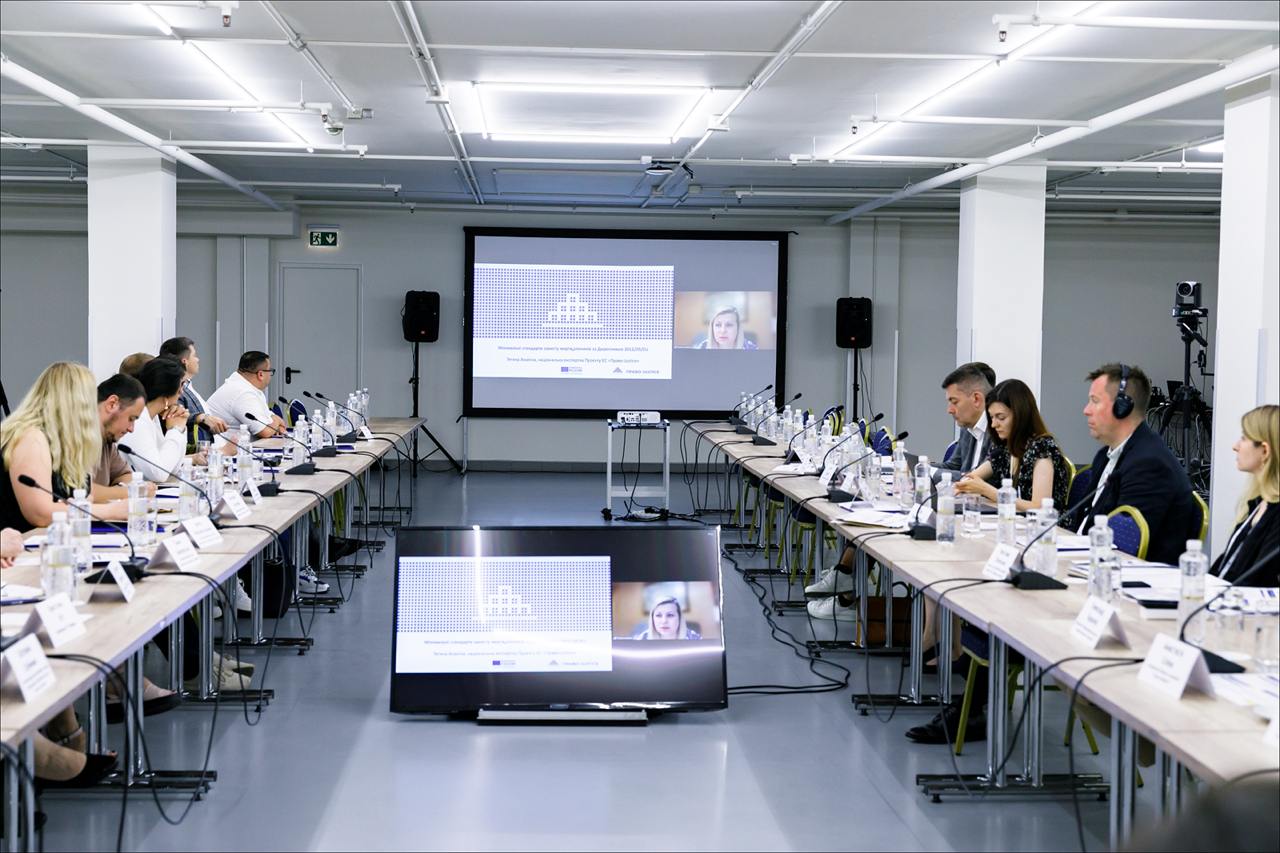
Tetiana Anakina, national expert of EU Project Pravo-Justice, presented minimum standards for protecting victims of crime under Directive 2012/29/EU, the main horizontal EU instrument for protecting victims of crime. The main rights of victims include:
- information rights and support from the first contact and throughout the proceedings;
- rights in criminal proceedings;
- rights in the context of ensuring protection and addressing the special needs of victims of crime.
According to Tetiana Anakina, the EU is preparing draft amendments to the Directive, which, for the first time, will specifically mention victims of international crimes.
“Thanks to a broad public discussion and involvement of representatives in professional discussions, including those from Ukraine, protecting victims of international crimes is becoming more and more prominent on the EU agenda because of the tragic events in our country,” she said.
Moreover, the expert said that this Directive constitutes a part of the EU’s pre-accession acquis. That is why, in the context of accession negotiations, pursuant to the Enlargement Package Report, Ukrainian legislation ‘must fully comply with EU Directive 2012/29/EU on the rights of victims of crime...’.